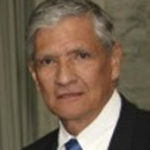Freedom
Man’s quest for freedom is a powerful motivator. Christians historically thought that freedom was found in Christ, because apart from Him we live with the misery of our own failure, unredeemed. Since the fading of Christianity beginning in the Enlightenment period of the 1700’s, the quest for freedom has shifted to a push for mere individual autonomy. That has resulted in real freedom, because the majority of society (in the West) was yet suffused with Christian principle.
What has happened? As Christianity has faded, moral self-restraint has faded with it, and the freedom we had from government oversight has become replaced with endless rules and regulations. It is practically impossible, now, in the United States, to avoid being in violation of some law somewhere, at some time. We live in a managerial state. And what that has led to is the idea that any reform or improvement in society should happen in the form of law, and law is of course law because it is enforced by the government by force.
This reflexive looking to government for the means to reform is eroding our freedom daily, whether we understand that freedom to be the freedom Christians sometimes say they have in Christ, or the individual autonomy that is the ostensible goal of liberal democracy.
Reflexive government intrusion
We should reconsider whether it ought to be so automatic that we look to the government for resolution of every perceived problem. The government is involved in so much of our lives because laws build on laws, and we become inured to the idea that this perceived problem or that one ought to be addressed by more government.
Consider the wage and hour restraints on the new as-need service economy. Why do we have a web of arcane rules on when people can work and what they must be paid? How is it not obvious that this is a restraint on a market—the very opposite of free trade, a principle that we usually say is a good one? Answer: it’s always (in living memory, anyway) been that way. We are expected to slavishly follow nonsensical wage and hour laws as if our principal problem was working too hard, being paid too little, and exploiting child labor. Meanwhile people who would like to work in creative ways are prevented from doing so. Think about the lawsuits that innovators routinely encounter.
Here’s another example. Women should be paid the same as men for the same job, right? Of course. But there’s a whole raft of government-imposed anti-freedom restrictions imposed on us as part of a larger feminist agenda, of which equal pay for equal work is but a part. We’ve touched on this in posts about Gloria Steinem and Melinda Gates, the latter pointing to the supposed crying need for yet greater government intervention into the family, especially those darn lazy men who need a tougher talking-to than a nagging wife alone can deliver.
And of course there are the bathroom wars, so-called. We have arrived at the point that our government is telling us that our daughters must share locker rooms with boys, as we reported here. This isn’t just the stupid idea du jour. It’s law.
What all of these kinds of reform have in common is a reflexive government-is-the-answer solution. Pass more laws. Never mind that every new law removes freedom, by definition. That’s the purpose of law.
How to re-calibrate
 We should look elsewhere for answers to what freedom is. How about toward a genuine hero, Armando Valladares, who was a political prisoner of Castro for 22 years. Now is a good time to be reminded of him, in light of the loosening of relations with Cuba. Valladares, the author of Against All Hope: A Memoir of Castro’s Gulag, knows a thing or two about freedom. In a speech on May 12th, as reported by the Wall Street Journal May 24th, he said:
We should look elsewhere for answers to what freedom is. How about toward a genuine hero, Armando Valladares, who was a political prisoner of Castro for 22 years. Now is a good time to be reminded of him, in light of the loosening of relations with Cuba. Valladares, the author of Against All Hope: A Memoir of Castro’s Gulag, knows a thing or two about freedom. In a speech on May 12th, as reported by the Wall Street Journal May 24th, he said:
I warn you: Just as there is a short distance between the U.S. and Cuba, there is a very short distance between a democracy and a dictatorship where the government gets to decide what we believe and what we do. And sometimes this is not done at gunpoint but instead it is done one piece of paper at a time, one seemingly meaningless rule at a time, one silencing at a time. Beware young friends. Never compromise. Never allow the government—or anyone else—to tell you what you can or cannot believe or what you can and cannot say or what your conscience tells you to do.
We should listen. There is no longer any reason at all that this once-great country cannot continue to go the way of tyranny, as did Cuba.
